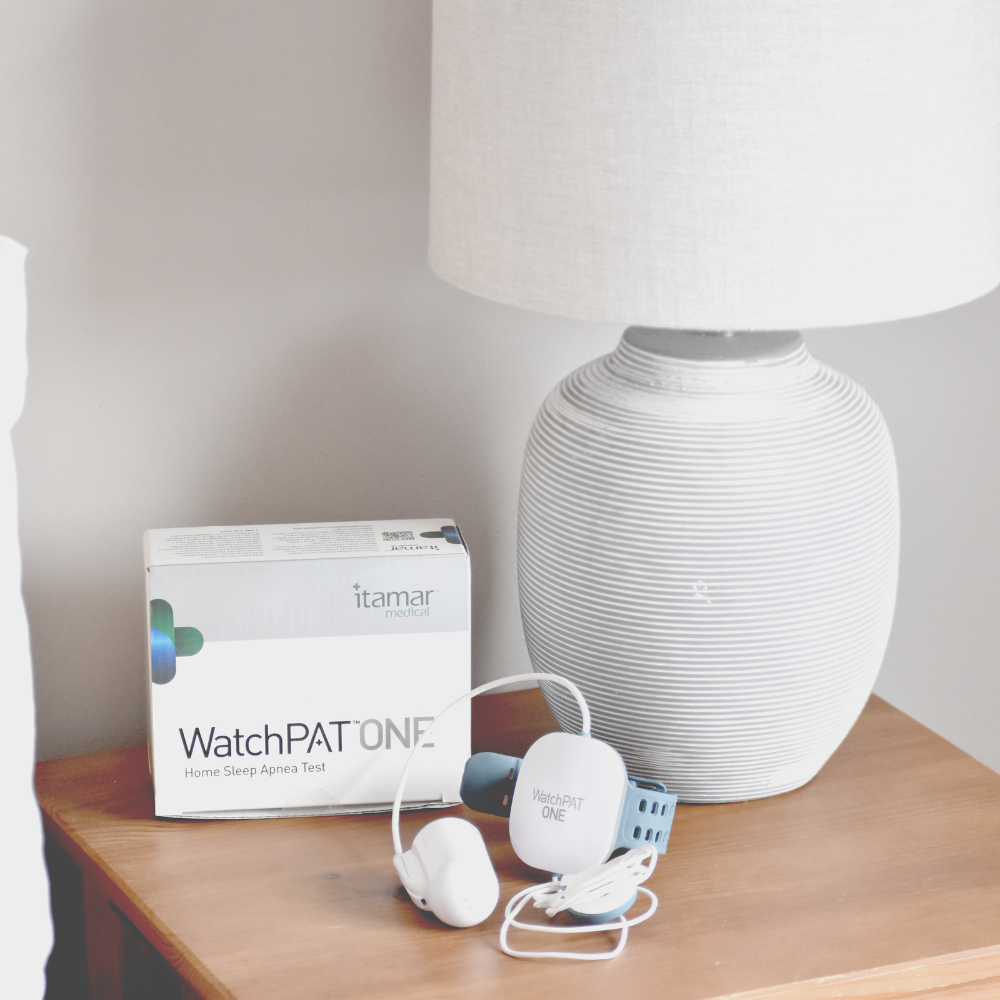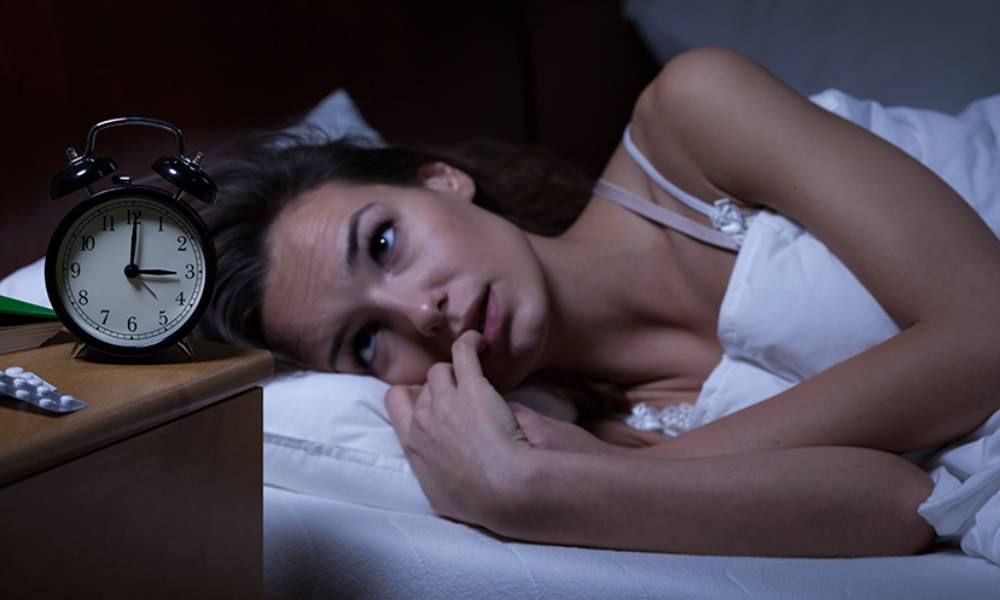Fact Checked
Intus Healthcare’s writers, customer service team, and sleep experts review and ensure this information is accurate.
Last updated on March 31st, 2025 at 11:10 am
There can be several reasons for waking up at night, ranging from lifestyle factors to underlying medical conditions.
Obtaining a good night’s rest is critical for physical and mental well-being. A lack of sleep can disrupt REM (rapid eye movement) cycles, and more often than not, the individual in question will feel groggy throughout the following day.
Table of Contents
Why do I keep waking up at night, and what can I do?
Here are some common reasons for waking up in the middle of the night.
Stress and Anxiety:
High levels of stress or anxiety can lead to sleep disturbances, including waking up in the middle of the night. Racing thoughts, worries, and a general sense of unease can make it difficult to stay asleep.
Many individuals “worry themselves awake” on a nightly basis. Whether resulting from familial issues, bipolar disorder, or work-related stress, it is evident that these emotional states can have significant consequences on the body.
Unfortunately, this tends to be a self-perpetuating cycle; those anxious about receiving a restful evening of sleep are more likely to remain awake. In other words, the situation worsens over time.
Sleep Environment:
An uncomfortable sleep environment, such as a too-hot or too-cold room, excessive noise, uncomfortable mattress or pillows, or bright lights, can disrupt your sleep and cause you to wake up.
Sleep Disorders:
Various sleep disorders like insomnia, Sleep Apnoea, restless legs syndrome, and periodic limb movement disorder can disrupt sleep and cause frequent awakenings. One example of a common sleep disorder is Obstructive Sleep Apnoea, which is caused by a narrowing or closing of the airways when the muscles in the throat relax.
As a result, your body cannot obtain the level of oxygen it requires. Otherwise referred to by the acronym OSA, this is a condition silently suffered by millions of individuals.
Poor Sleep Hygiene:
Irregular sleep schedules, consuming caffeine or heavy meals close to bedtime, and using electronic devices before bed can interfere with your ability to stay asleep through the night. Many of us have come to rely on gadgets such as mobile phones and laptop computers regularly. However, their use can impact your sleep.
Studies have shown that the light (blue light) emitted from these devices can disrupt our bodies’ ability to produce a chemical known as melatonin. This hormone plays a role in the sleep-wake cycle, helping regulate sleep.
Blue light suppresses melatonin for about twice as long as green light and shifts circadian rhythms by nearly twice as much, delaying sleep onset and reducing sleep duration. This effect stems from the interaction of blue light with the retinal cells that signal the brain to reduce melatonin production, thereby delaying the body’s recognition that it’s time to sleep.
A study found that exposure to blue light for just two hours in the evening suppressed melatonin production by about 40% (1).
The sounds from electronic devices can also cause the mind to remain active when you should be winding down. It is, therefore, best to turn off any electronics at least 30 minutes before sleeping.
Those living in an environment with high noise levels will naturally experience issues when trying to fall asleep. In this case, white noise or sound-blocking earplugs may be wise options to consider.
Related article: What is sleep hygiene and why is it important?
Medical Conditions:
Certain medical conditions like gastroesophageal reflux disease (GERD), chronic pain, asthma, and other medical issues can wake you up at night.
For example, eating certain foods before bed can result in indigestion, particularly with spicy substances or those high in sugar. When the body has difficulty digesting such foods, bloating and cramping can result. If changing your dietary habits does not improve the situation, it is a good idea to consult with a doctor.
Nocturia:
This condition is commonly defined by the need to urinate during sleep. While it may result from a high fluid intake, there could be an underlying cause present, such as pregnancy, an enlarged prostate, certain types of medication, a bladder prolapse or an overactive bladder. It is worth noting that drinking alcohol before going to bed can also cause nocturia.
Hormonal Changes:
Hormonal changes, such as those during pregnancy or menopause, can lead to changes in sleep patterns.
Chronic Pain:
It can be harder to attain a full night of sleep if you have chronic pain causing frequent sleep interruptions. Relieving this pain should be addressed with a medical specialist to ensure your specific needs are addressed.
Medications:
Fragmented sleep may be a result of the medications you are taking. Some medications can disrupt normal sleep patterns by affecting neurotransmitter levels, altering sleep-wake cycles, or causing side effects like restlessness or frequent urination.
Alcohol and Substance Use:
Alcohol and certain substances can interfere with the body’s natural sleep cycles and disrupt sleep quality. While alcohol might initially make you feel drowsy and help you fall asleep, it can lead to fragmented and shallow sleep throughout the night, causing frequent awakenings.
Similarly, substances like stimulants or certain recreational drugs can disturb the delicate balance of neurotransmitters that regulate sleep, leading to a disrupted sleep pattern.
Age:
As we age, our sleep tends to become more fragmented and lighter, making us susceptible to waking up during the night. Factors such as hormonal shifts, changes in circadian rhythm, and alterations in neurotransmitter levels can all contribute to these interruptions.
Older adults might wake up due to discomfort from ailments like arthritis or an increased need to use the bathroom due to reduced bladder capacity.
Napping:
The tendency to wake up at night could be associated with your napping habits. While napping during the day can offer rest and rejuvenation, it can also disrupt your nighttime sleep cycle.
Extended or irregular daytime naps might lead to a reduced sleep drive at night, causing you to wake up intermittently. Additionally, napping too close to bedtime can make it harder to fall asleep and maintain sleep throughout the night. It’s important to strike a balance between daytime napping and nighttime sleep.
Digestive Disorders:
Different digestive conditions such as IBD, IBS and celiac disease can make it harder to relax and wind down during the nighttime hours. Addressing the underlying digestive disorder and adopting strategies to manage symptoms can improve sleep quality and overall well-being.
If you suspect you have a digestive disorder that’s affecting your sleep, seek medical advice for proper evaluation and treatment.
About Obstructive Sleep Apnoea
If you wake during the night with the need to urinate or experience choking and gasping for air, you could be suffering from Obstructive Sleep Apnoea (OSA). This could also be true if you snore loudly and frequently.
Sleep Apnoea is a sleep disorder that causes repeated interruptions in breathing during sleep. These interruptions are caused by the muscles in the throat and tongue relaxing excessively, leading to a temporary blockage of the upper airway. As a result, breathing is briefly and repeatedly disrupted throughout the night, causing the person to wake up to restore normal breathing. However, these awakenings are usually so brief that the person might be unaware of them.
OSA symptoms include:
- Morning headaches
- Feeling tired and sluggish throughout the day, or excessive daytime sleepiness
- Constant snoring
- Waking up in the middle of the night choking or gasping for air
It is thought that more than 85% of the UK adult population has undiagnosed OSA (1). High blood pressure, obesity, cardiovascular disease, and even heart attacks can occur if this condition is left unchecked.
The good news is that Sleep Apnoea is a treatable condition.
Concerned you may have Sleep Apnoea?
If you keep asking yourself, ‘Why do I keep waking up at night?’ and you have already made changes to your environment and lifestyle, you may wish to consider a home sleep test to confirm or rule out the presence of Sleep Apnoea.
You can also use our free online risk assessment below to establish your initial risk of having the condition. If you are at risk, you can order our simple home sleep test to determine if you have OSA.

Home Sleep Apnoea Test
The test monitors your heart rate, snoring intensity, blood oxygen levels, body positioning, and more, providing accuracy comparable to testing used in sleep clinics for in-depth sleep analysis.
The simple-to-use test takes just one night to complete, and results are returned within two working days after completion.
Our experienced NHS-qualified sleep professionals independently analyse all studies, providing follow-up advice and support.
About Our Editorial Team
Danni is a degree-educated content writer passionate about helping those with Sleep Apnoea sleep better; she works closely with our clinical and customer care teams to ensure that each article is thoroughly researched and accurate.
Her writing aims to inform, support, and advise readers about Sleep Apnoea, helping to raise awareness and promote effective treatment options.
She has written many health-focused articles, reaching hundreds of readers annually, to help people sleep better and live healthier lives.
Lateisha King is an experienced Sleep Clinician with advanced training in polysomnography and respiratory health.
With over six years of experience, including at the prestigious Guy’s and St Thomas’ NHS Foundation Trust Hospital, she has conducted and reviewed more than 500 diagnostic sleep studies.
Her expertise in sleep science ensures that all articles align with the latest data and treatment protocols, providing readers with trustworthy and practical advice to improve their sleep health and overall well-being.
References:
- Figueiro MG, Wood B, Plitnick B, Rea MS. The impact of light from computer monitors on melatonin levels in college students. Neuro Endocrinol Lett. Available at: https://pubmed.ncbi.nlm.nih.gov/21552190/. Accessed: 14.10.2024.
- Nunez, C. M. (2019, July 30). More than 936 million have obstructive sleep apnoea worldwide. ResMed UK. Available at: https://www.resmed.co.uk/patient/resources/sleep-apnoea-blog/936-million-have-osa-worldwide/. Accessed: 14.10.2024.





